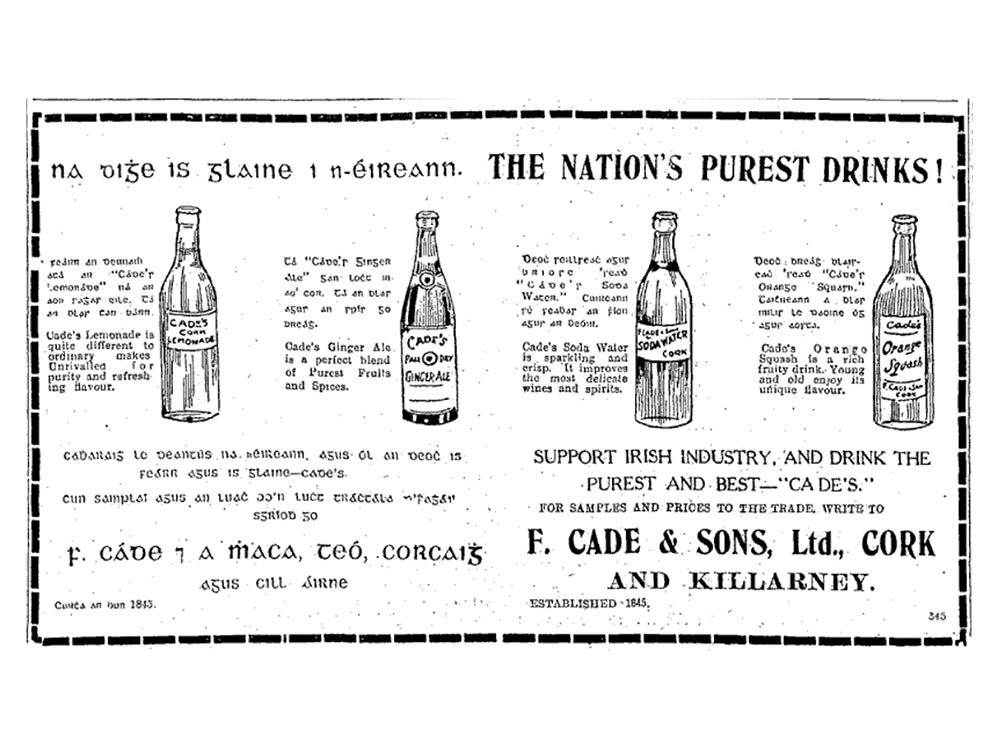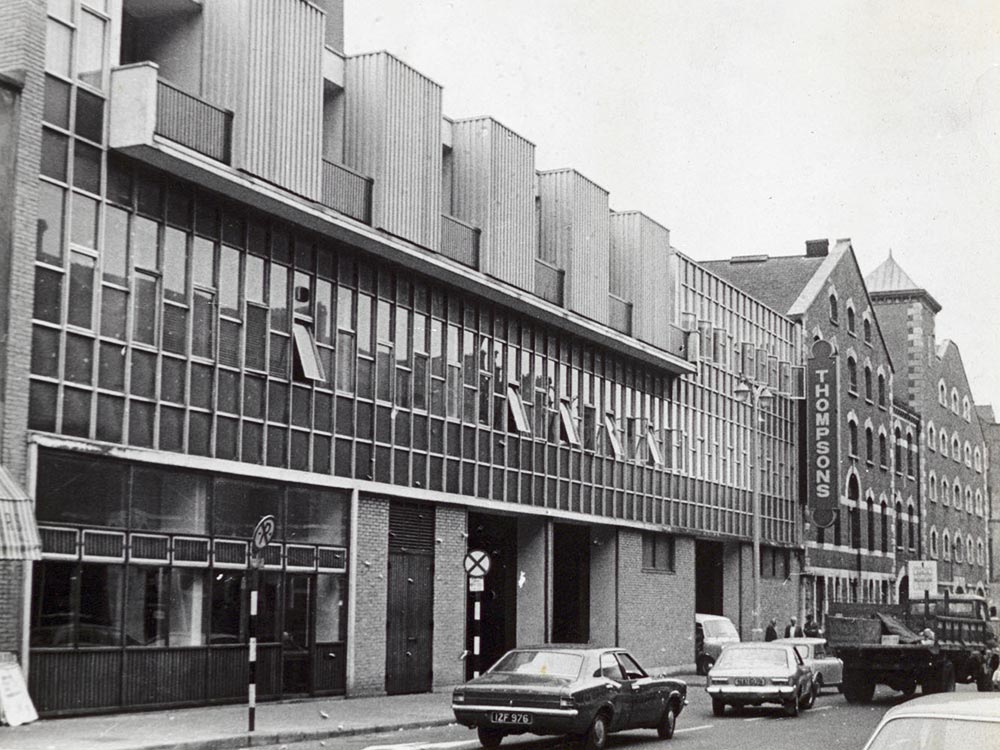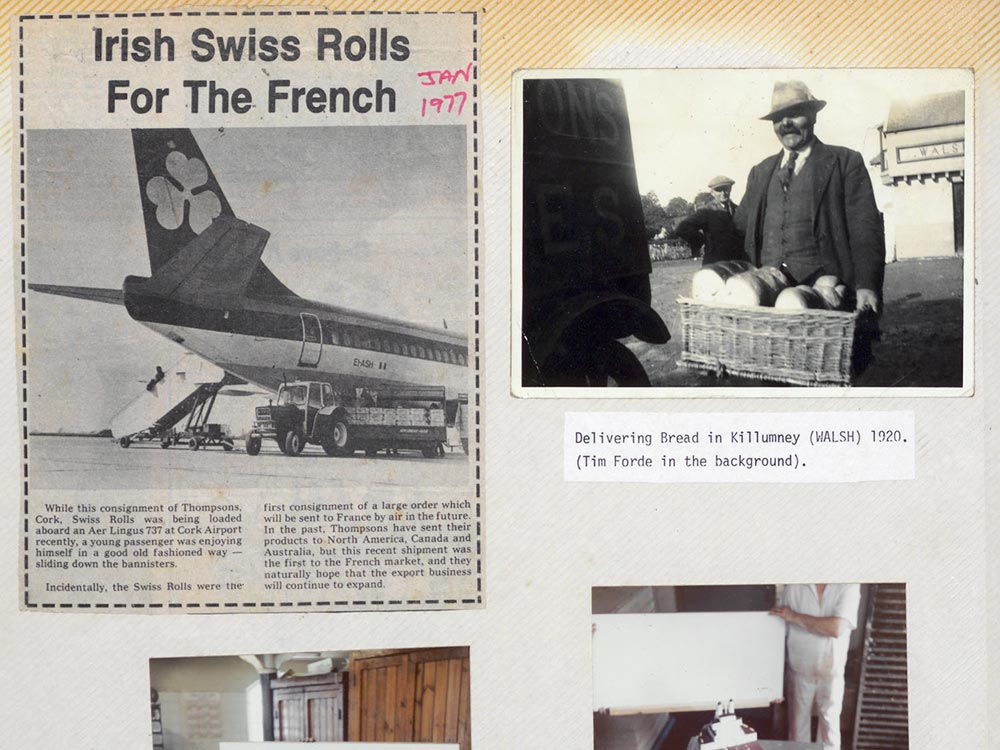Swiss Roll Factory
This striking modern building was designed by Frank Murphy and Ian White in 1967 as an addition to Thompsons Bakery. The lower floors were given over both to bread baking and a 'multi-purpose sponge plant' devoted (amongst other things) to the production of Thompson's famous Swiss roll – a mile of which was produced every day in the 1970s!
The upper floors, which have boldly cantilevered balconies, were given over to offices. Commissioning this modern building was a brave move in the late 1960s, as the rest of the street was dominated by Victorian red brick architecture.
The modernist 'sponge plant' replaced a number of other buildings. To the left-hand side was a fine pair of townhouses, with steps running along the façade and up to front door topped with a fanlight, much like surviving houses on the South Mall. This pair appear on the first Ordnance Survey Map, dating from 1842 and may represent an early ambition to develop McCurtain Street, then King Street, in much the same pattern the South Mall. This was not to be, and the pair stood side by side, as a domestic experiment in what grew to be a sea of commerce and industry.
To the right of the two fine houses was a one storey building with a large gateway, graced with a triangular pediment. This was the home Cade and Sons Mineral Water Manufacturers. The company was founded in 1845 by Francis Cade on King Street. In 1863 we hear that their premises on King Street had been 'lately erected', suggesting that at this time they had established themselves in a purpose-built structure. At the end of the 19th century, Cades had the bottling license for Guinness and Bass in Cork, and also produced 'lemon squash', 'kali water' and 'summer drink', amongst many others. Cades outgrew their McCurtain Street site, moving to South Terrace in 1953 and then to a new factory on the Farranlea Road in Victoria Cross in 1963. Their property on McCurtain Street was acquired by Thompson's bakery between 1940 and 1953.





